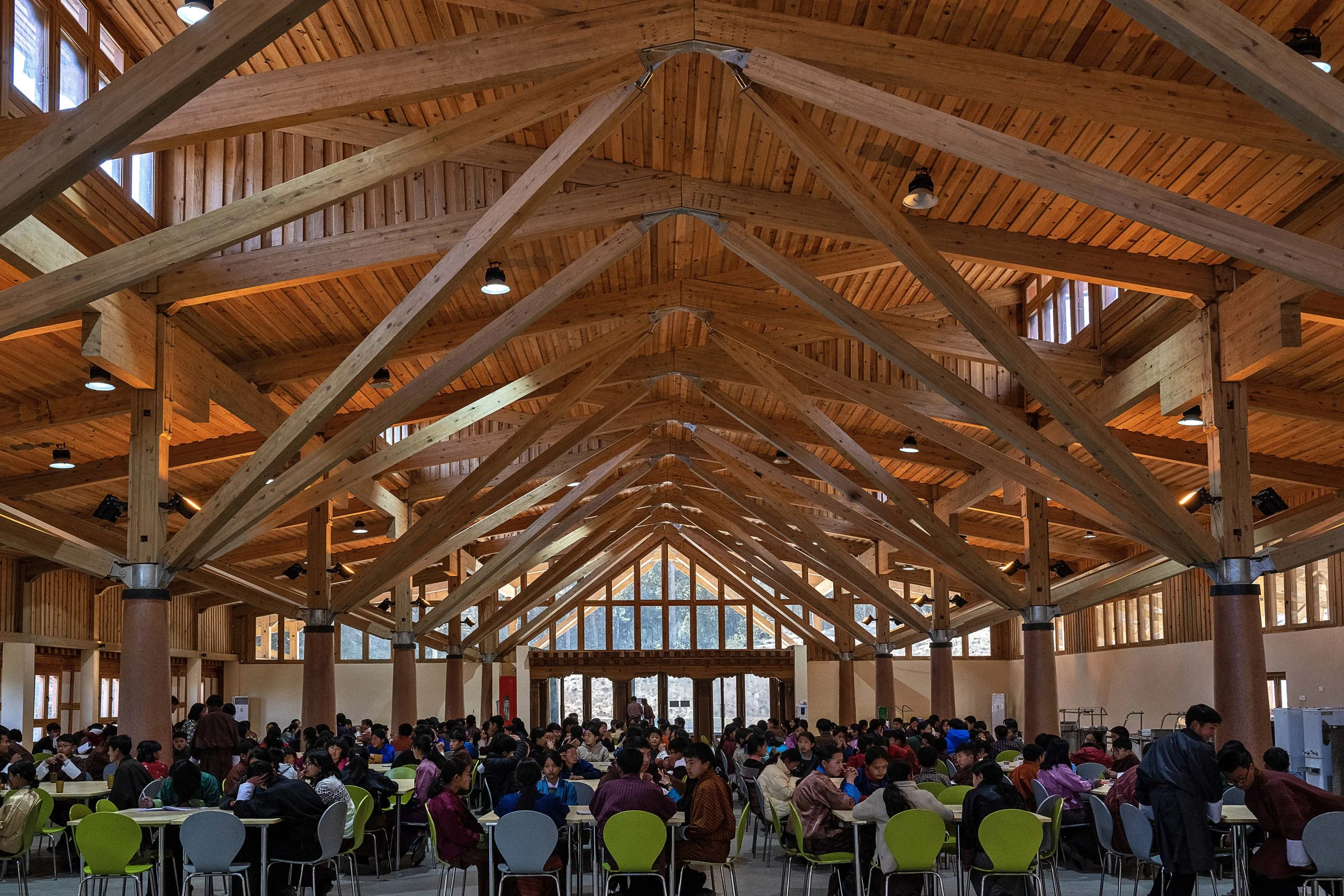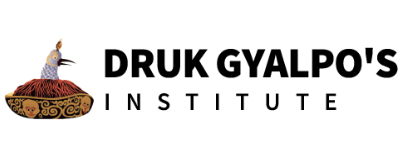
Frequently Asked Questions
About DGI
What is the Druk Gyalpo’s Institute (DGI) and its mission?
The Druk Gyalpo’s Institute (DGI) is a wholistic learning institute comprising The Royal Academy, the Education Research Centre, and the Teacher Development Centre. Its mission is to nurture future leaders and constructive, contributory citizens of a just and harmonious society by supporting learners’ cerebral, emotional, social, physical, and spiritual development through a learning process that is contextualised, cross-pollinated, and individualised.
Who founded DGI?
DGI was conceived by His Majesty King Jigme Khesar Namgyel Wangchuck as a tribute to His Majesty Jigme Singye Wangchuck. It reflects the belief that education is key to personal empowerment and societal enrichment.
What is DGI’s legal and autonomous status?
DGI was established as a non-profit autonomous institute under a Royal Charter granted in September 2021. Its autonomy allows it to innovate, adapt curricula, advance educational initiatives like the Bhutan Baccalaureate, and collaborate flexibly with national and international partners.
What are the main centers under DGI and their roles?
There are 3 main institutes under DGI are -
Teacher Development Centre (TDC): Offers professional growth for educators through training, workshops, and mentoring.
Education Research Centre (ERC): Conducts research, develops curricula, and supports the Bhutan Baccalaureate Learning Process.
The Royal Academy (TRA): A residential co-educational school from grades 7–12.
How does DGI integrate Bhutanese culture and values?
Through traditions, rituals, community engagement, collection of 7 gifts and local practices, DGI promotes cultural awareness while nurturing values like empathy, responsibility, and collaboration
What is the Motherboard?
The Motherboard is the AI enabled platform that enables the learning process of the Bhutan Baccalaureate. It offers space for schools to upload their timetable, input observations and assessments, design Roadmaps and share learning resources. In brief, it is an online platform that brings together Backstories, Roadmaps, and Assessment records. It helps teachers, learners, and parents see progress clearly and in real time. The Motherboard also allows schools to share practices and resources, making learning more connected.
Bhutan Baccalaureate
What learning programmes are offered at DGI?
DGI’s core programme is the Bhutan Baccalaureate Learning Process, complemented by teacher immersion programmes, professional development programmes for teachers, summer programmes for students, student exchanges, and tailored enrichment programmes for interested participants.
What is the Bhutan Baccalaureate (BB)?
The Bhutan Baccalaureate is a wholistic learning process that develops learners in the Five Areas of Development. It is a learning process that can be contextualised to any curriculum, school system or country.
How is the Bhutan Baccalaureate (BB) different from other programmes?
The Bhutan Baccalaureate is not limited to high-stakes exams or rote learning. It emphasises wholistic growth through the Five Areas of Development, helping learners connect knowledge with real life, community, and personal well-being. Board-agnostic and adaptable, the BB can be embedded within any curricula and existing examination systems, and contextualised across different regions and cultures.
Why did Bhutan feel the need to design its own baccalaureate programme instead of adopting an existing model?
Bhutan designed its own Baccalaureate to create an approach to education rooted in its values, culture, and aspirations. Guided by His Majesty The King’s vision, Bhutan Baccalaureate approaches education as the development of the whole person: cerebrally, emotionally, physically, socially, and spiritually. The Bhutan Baccalaureate is therefore aimed at nurturing constructive contributory citizens in a just and harmonious society. These are Persons of Substance who are connected to their identity, community, and the wider world.
Does BB support learners with different abilities?
BB is flexible and inclusive, adapting methods and pace to individual strengths and potential.
How does the Bhutan Baccalaureate (BB) prepare learners for life beyond school, including higher education abroad?
The Bhutan Baccalaureate equips learners with critical thinking, creativity, collaboration, adaptability, and resilience - essential skills for higher education, careers, and meaningful community engagement. Its wholistic approach is increasingly recognised, enabling students to pursue opportunities both in Bhutan and abroad.
Teachers & Professional Development
How are teachers trained at DGI?
Teachers receive orientation, mentoring, and continuous professional development through the Teacher Development Centre to ensure that philosophy and the learning approaches are consistent with the Bhutan Baccalaureate Learning Process..
How does DGI support teacher growth and innovation?
Teachers collaborate, access mentoring, and receive ongoing professional development and training to encourage creativity and improve learning outcomes.
Global & Community Engagement
Does DGI collaborate with other schools or international programmes?
Yes. DGI partners with institutions in Bhutan and abroad to learn and share knowledge, resources, and learning experiences through exchange programmes, summer programmes, competitions, and collaborations.
Admissions & Enrollment
How can students seek admission to The Royal Academy, and what are the requirements and timelines?
Admissions to The Royal Academy are only at the entry level of Grade VII. Student selection is carried out through two processes:
National Character Representation: To maintain and uphold the national character of the student community at The Royal Academy, every year 120 students from all the 20 Dzongkhags are invited for the Winter Camp, scheduled in early February. The Royal Academy coordinates with the Dzongkhag Administrations, who nominate six students who have completed Grade VI. The nominations must be from students who have studied in one of the schools in the Dzongkhag and who also have their census in the Dzongkhag. Most students nominated from the Dzongkhag are orphans, from single parent homes, or parents with disabilities, and are of socio-economically vulnerable families.
Online Application: In addition, 30 meritorious students, who are not nominated by Dzongkhag Administrations but have obtained an aggregate of at least 90% in Grade VI, are invited to the Winter Camp through an open online application process.
In total, every year 150 students are invited to participate in The Royal Academy Winter Camp - 120 students nominated through Dzongkhag Administration and 30 students shortlisted from the Online Applications. Following the camp, 60 students are offered admission and scholarships - 40 students (two from each Dzongkhag) and 20 selected from the remaining group.
Are there fees for attending The Royal Academy?
In Bhutan, education is free. All schools are funded by the government, covering tuition, books, uniforms, and other essentials.
NOTE: for any further questions about the DGI or the Bhutan Baccalaureate, please refer to the Chatbot on the website.
